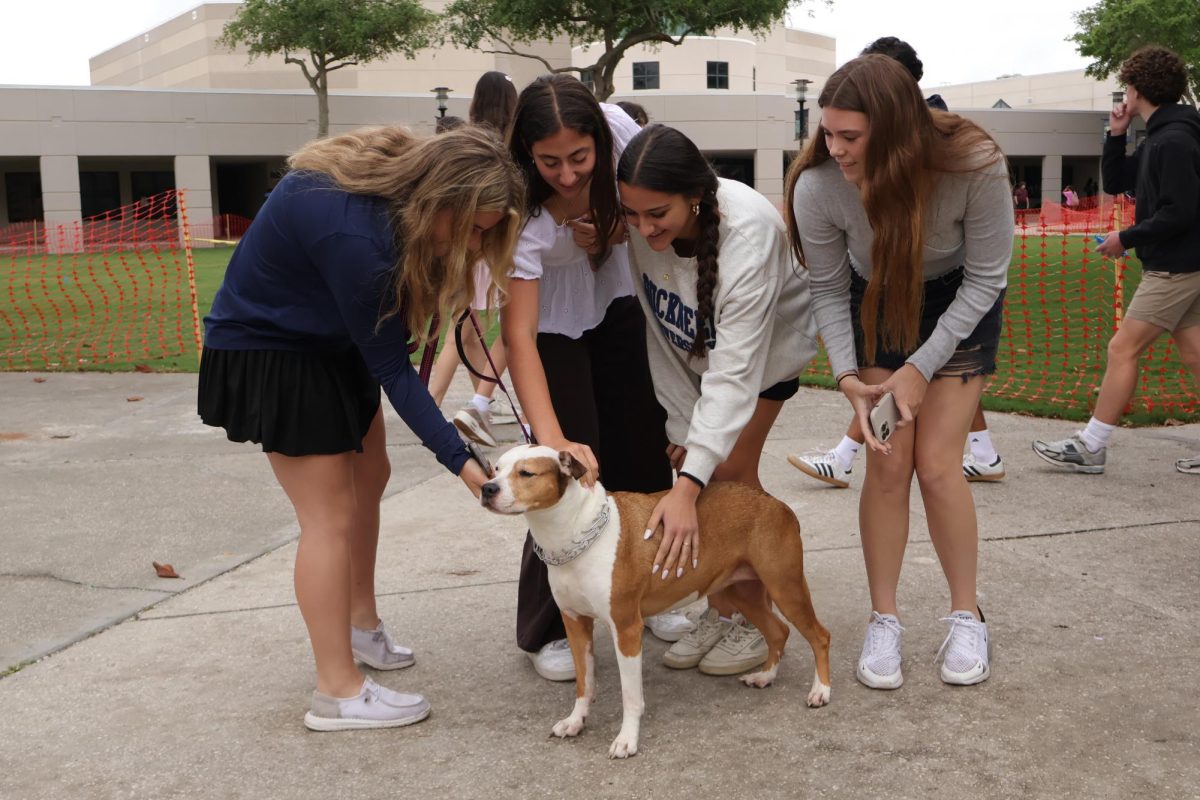U.S. teens lack confidence in their knowledge of personal finance, causing further financial struggles later in life. Around 75% of teens across the country are struggling with financial literacy, according to a 2023 report by financial firm Annuity. The troubling statistic demonstrates how ill-prepared future generations will be to sustain themselves financially.
The responsibility of a school is to increase knowledge, and in terms of personal finance, Trinity is missing the mark. The school does not offer a personal finance class, which should be implemented to ensure our students are not a part of the alarming statistics.
According to Ramsey, a financial consulting firm, the knowledge from personal finance classes lays a foundation for students to build strong money habits and avoid many of the mistakes that lead to lifelong money struggles.
“From budgeting, balancing a check and what it means to save for retirement … [personal finance classes give] kids a foundation that is super important,” said Director of Learning and Instruction Dr. Stephanie Dryden.
When students know the true value of their money at an early age, they are set up for better spending habits going forward. This decreases the risk of going into debt and later financial struggles, and can be taught through a high school personal finance class.
At Trinity, the only form of personal finance education is during one week in the Honors Economics class. However, a single unit is not as comprehensive as a semester-long personal finance class. According to Caralyn Saldarriaga, AP Microeconomics/Macroeconomics and Honors Economics teacher, it would be ideal for a whole semester to be dedicated towards a personal finance class.
The Florida government has already acted upon the lack of youth financial literacy establishing a mandatory one-half credit in personal financial literacy and money management by passing Bill 1054, which went into effect on Jul. 7, 2022.
“Financial literacy is an important life skill for a student to have,” Governor Ron DeSantis said. “Ensuring our students have the skills to manage their finances and perhaps one day own a business will pay dividends for our state. I am proud to sign this bill to support the future of Florida’s students and ultimately their families and communities.”
The new law requires instruction to include lessons on how to balance a checkbook, manage debt, open and manage a banking account, and understand credit scores and interest rates, among other things.
However, this legislation does not apply to Trinity Prep, as it is a private school. When it comes to financial literacy, Trinity students are put at a disadvantage compared to public schools, which are actively teaching the course per the new law. As other schools begin to implement the course, Trinity must take it into consideration to fix the flaw in the curriculum.
Trinity Prep focuses on making leaders of tomorrow, but this cannot be possible if students graduate without knowing how to spend and manage their money properly.
“Financial literacy is something most students lack when they go off to college,” Saldarriaga said. “They don’t know the real costs of things, and they don’t understand this difference between need versus want. It’s very important and I would love to see it put in place.”
Though logistical challenges, such as hiring teachers, place obstacles in the inclusion of the course, the skills taught are increasingly important as the economy continues to change and develop.
“Market forces are going to be dominating our economic realities, so you need to know how to navigate those waters,” said social science teacher Brandon Burmeister, who has taught economics in the past. “Personal finance helps you know how to, at a young age, begin to put money away for retirement, know how to invest responsibly, and know credit cards aren’t really money.”
Simple financial skills slip through the cracks, making students unable to complete real-life tasks. Often, the school curriculum gets caught up in applied evolution or systems of equations, failing to provide students with skills to help them succeed in the real world and stay financially afloat post-graduation.
Burmeister notes that an early start is crucial for students so they are able to manage the ups and downs when starting their financial journey. Starting early not only provides a path for learning but also an opportunity to ask questions. To fail inside a classroom is far better than failing in the real world.
“I think knowing those things is valuable for anybody, but especially for 18-year-olds and 17-year-olds that are about to just go dive in the water with the sharks,” Burmeister said.
Trinity Prep must act now to provide instruction on financial literacy and prevent bad spending habits and debt in students’ futures. For graduates to excel, we must take the initiative to correct the lack of financial education.













